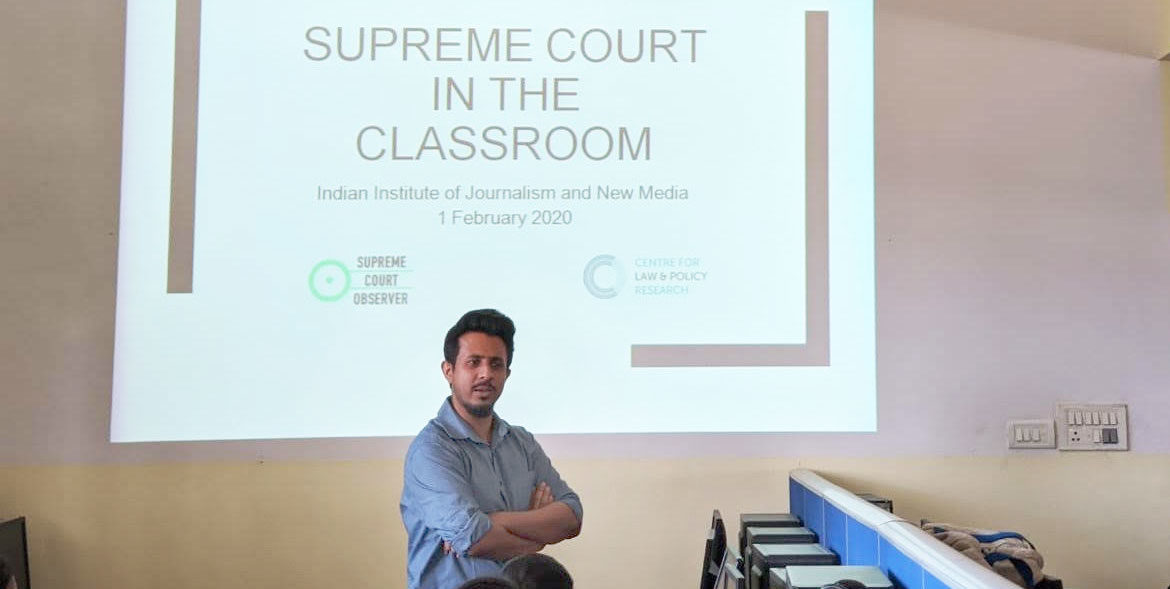
‘Journalists must read court verdicts before reporting them’
Journalists are pulled up for committing contempt of court because they lack knowledge of terminology used in lengthy judgments. It is important for them to read court verdicts before reporting them, a team from the Centre for Law and Policy Research informed IIJNM students at a workshop on February 1, 2020.
The team – Vineet Krishna, Balu Nair and Jai Brunner, research associates at CLPR – guided the students on navigating court judgments and finding the right sources for their stories.
The workshop, focused on Supreme Court cases, was divided into three sections: A presentation, a workshop and a discussion. The presentation focused on the interpretation of the Constitution and the ingredients of a case.
Mr Krishna introduced the students to the Constitution by relating it with the MCC rulebook in the field of cricket. He explained why a Supreme Court verdict is more important than a judgment of any other court.
Mr Brunner took the students through the process of a judgment by breaking it into three parts: filing of a petition, oral arguments and the judgment. He explained terms like petitioner, respondent and writ petition. He also played a few videos to explain the process.
Mr Nair then outlined the next part of the workshop. The students were given a worksheet focusing on the Sabarimala Temple Entry case, on which the Supreme Court passed a judgment on September 28, 2018. They were asked to refer to Supreme Court Observer, a website run by the CLPR, and find the right sources for answers to questions in the worksheet.
The students were asked to read and share their impressions on two opinion pieces: The Constitution Dharma by Arghya Sengupta and M for Menstruation by Vinay Lal. These were debated in the discussion round.
The students’ answers were reviewed during the final discussion. Mr Nair explained the right way to approach each of the questions.
Student Anushka Sharma thanked the CLPR team for showing the IIJNM students how to navigate information and find the right sources.
Ankita Mukherjee, a student, shared: “I have never done a story on court verdicts. I was afraid this would put me in trouble. The workshop was interesting because it did not have much of lecturing. The hints guided us to the right answers for the questions in the worksheet.”
Her classmate Surbhi Shah said: “The workshop was informative. What I found interesting about their website was the way it explained the cases and judgments in plain English.”
Rahul Padman, another student, said: “It helped us to know who the right sources for our stories are.”
CLPR is a not-for-profit organization based in Bengaluru.
By Pallavi Sharma
